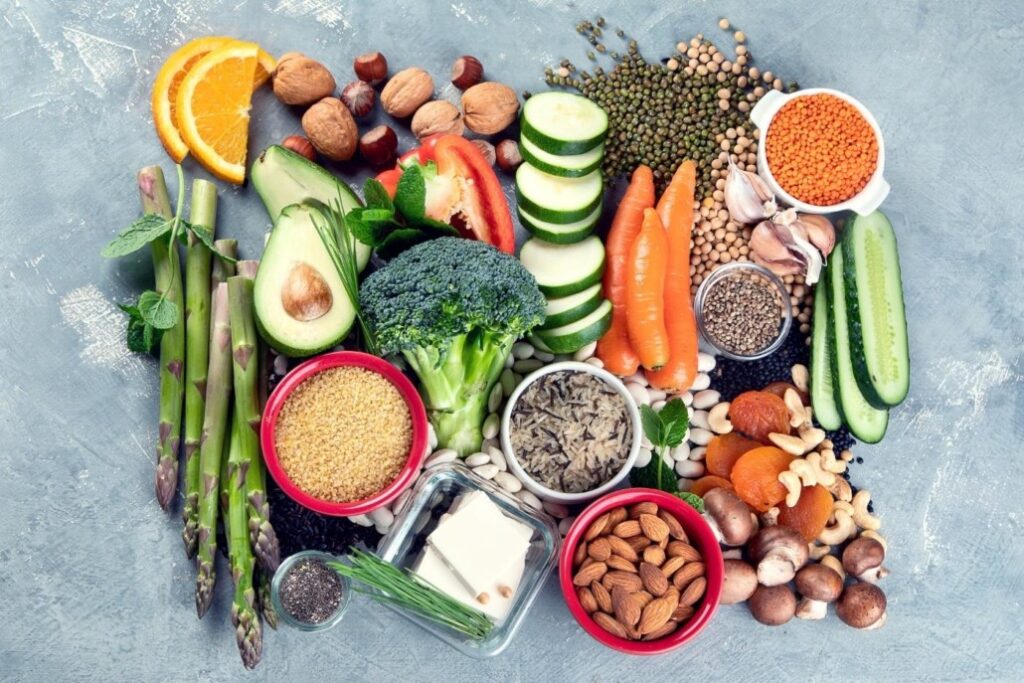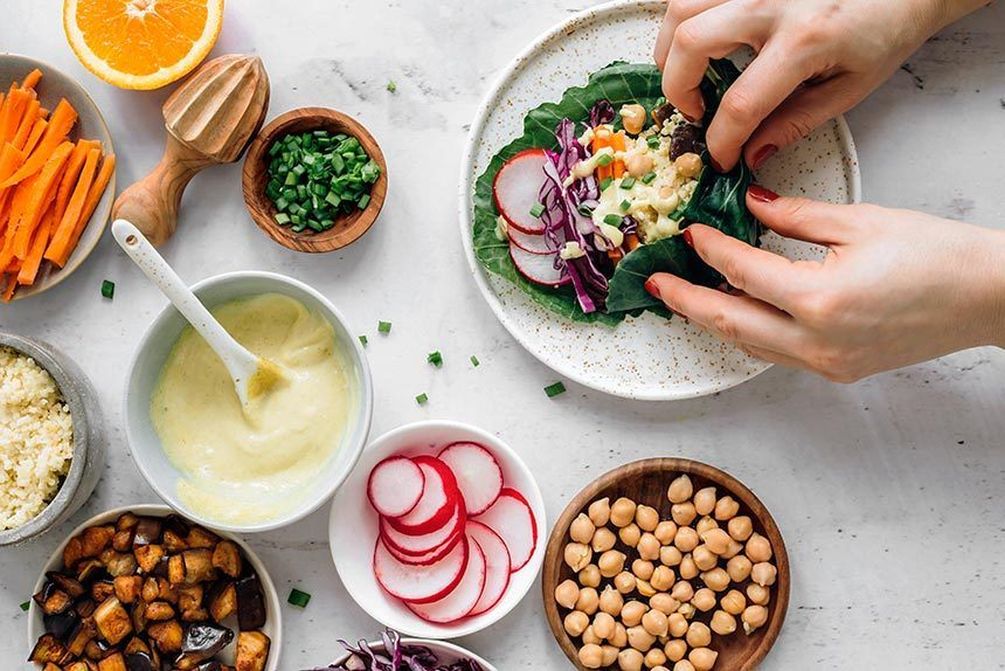Welcome to the plant-based revolution! Are you curious about how long it takes to make the transition to a plant-based diet? You’re in luck! We’re here to guide you on your journey and provide helpful tips and tricks for making the switch. So buckle up and let’s get started!
Benefits of Plant-Based Diets

Source: nutrition.org
Eating a plant-based diet is becoming increasingly popular for many reasons including environmental, health, and ethical considerations. For some people, transitioning to a plant-based diet may come naturally and easily, while for others it can take time and research. However, with the vast number of resources and plant based recipes now available to support individuals transitioning to this way of eating, taking steps toward a plant-based diet can be done with greater ease.
They are associated with numerous health benefits including:
- Improved digestion and elimination due to increased fiber intake.
- Decreased risk of chronic diseases such as diabetes and heart disease because of the low saturated fat intake found in such diets.
- Decreased risk of certain cancers due to the high amount of antioxidants found in plant sources.
- Protection against certain metabolic disorders such as insulin resistance due to their high amount of complex carbohydrates rather than simple carbohydrates found in processed food sources.
- Many people find that they lose unwanted weight naturally while on a plant-based diet because they are provided with essential nutrients from healthy whole food sources.
Although changing dietary habits may seem overwhelming at first glance, making a few small changes every week is just one way to successfully transition into a healthier lifestyle that is centered around whole foods and plants. Experimenting with different recipes you are familiar with using different proteins that can be easily substituted is another great way to make the process more enjoyable while introducing yourself to new flavors!
Tips to Transition to a Plant-Based Diet

Source: nutriciously.com
For many, transitioning to a plant-based diet can seem daunting or even intimidating. However, with some preparation and dedication, it can be done successfully. Here are some tips on how to transition to a plant-based diet:
- Start slowly – Start by incorporating more plant-based foods into your meals and slowly cut out animal products over time. This will help you acclimate to the healthier lifestyle more easily, instead of making drastic changes all at once.
- Educate yourself – Researching plant-based nutrition and familiarizing yourself with whole foods is key. Look up recipes online and make sure you are getting all of the nutrients you need from your new diet. Try out new recipes that you find online or join vegan cooking classes for more help and/or guidance.
- Experiment with New Foods – Make an effort to find creative ways to add flavor without relying on animal products. Many herbs, spices, and sauces can provide delicious flavor profiles that don’t require animal ingredients – get creative!
- Stock up Your Pantry – Stock your pantry with staples such as grains, canned beans, nuts/seeds, pastas etc., as well as plenty of fresh fruits and vegetables that you can use while cooking different dishes in order to add essential nutrients into your meals on a regular basis.
- Reach Out for Support – Don’t feel like you have to go through this journey alone! Everyone needs a little extra support sometimes; Find trustworthy resources online for support along the way or reach out for advice from friends/family who are already eating plant-based diets.
Following these guidelines should provide ample support in your transition from an omnivorous diet to a vegan lifestyle; however, the timing of this transition is dependent upon each individual’s commitment level – it may take several weeks or even months before one is fully accustomed to their new dietary habits!
Meal Planning and Shopping Strategies
Transitioning to this kind of diet can be overwhelming and time-consuming. To make the process easier and help maintain your motivation, it is important to plan ahead and set realistic goals. Here’s how:
- Meal Planning – Start by planning meals for the week ahead, considering how you’ll meet your nutritional needs without relying on animal products. Flexibility is key when creating these meal plans. Look online for recipe ideas and shopping lists, or create your own using foods you know you like or have in your pantry.
- Shopping Strategies – Do a weekly inventory of foods on hand, then use this list when grocery shopping. This helps reduce food waste while also saving money by avoiding impulse purchases. Foods like frozen veggies and legumes are convenient staple items to keep on hand that can be easily cooked during the week when meal prepping or making quick dinners after a long day of work or activities with family and friends. Planning ahead helps ensure you’ll always have easy access to delicious plant-based meals as well as snacks in between meals that are quick and nutritious – from homemade almond butter power bars to fresh celery sticks with hummus!
Success Stories

Source: gomacro.com
One benefit to transitioning to this lifestyle is that it does not need to happen all at once—it can be done gradually. Many people find it helpful to start by adding more whole foods into their diets—such as leafy greens, fruits, legumes and whole grains—and then gradually reducing their intake of processed animal foods such as dairy products and meats.
Depending on the individual’s diet before transition, it can take some time to adjust and fully eliminate animal proteins from the diet; however, there are people who transition quickly within days or weeks. Additionally, many individuals find advice from a nutritionist or doctor beneficial while transitioning in order to ensure they are meeting all of their nutritional needs without animal products.
Conclusion
Overall, transitioning to it takes some time and dedication. While it may seem overwhelming at first, having an understanding of the necessary steps and a positive attitude can make the journey more enjoyable. It’s important to remember that any progress is worthwhile – even small changes towards a healthier lifestyle are beneficial!
The transition can be made easier when you start by changing one or two meals a day. Additionally, trying new recipes and foods gives you the opportunity to find plant-based meals that appeal to your tastes. Lastly, don’t forget to have patience with yourself – it takes time for your body to adjust so don’t get discouraged.
With the right tips, information, and support you’re sure to find success transitioning into a healthy and sustainable plant-based diet!





